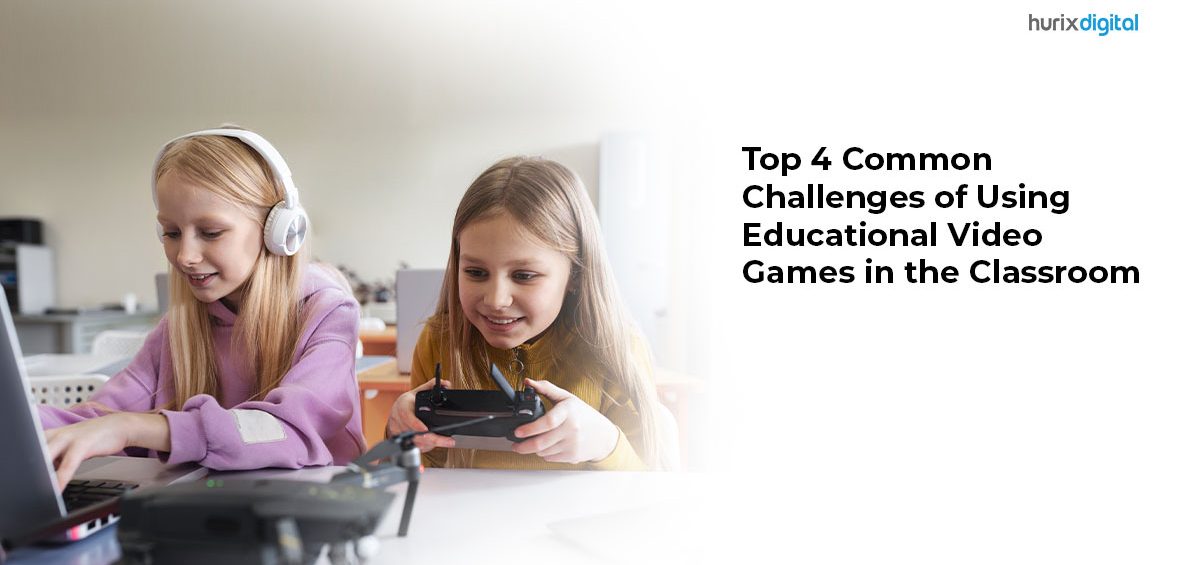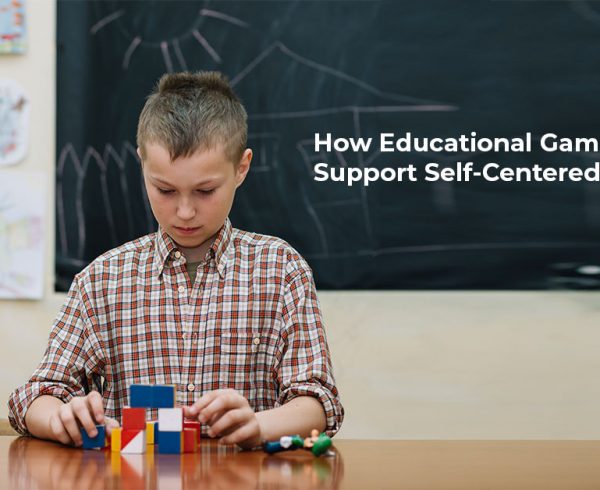Summary
This article discusses the common challenges of using educational video games in the classroom. It also offers solutions to these challenges.
Gamification in education dates back thousands of years. Elders and educators have long known that incorporating game-like features for knowledge instruction is an effective teaching style. The reason? Games are engaging and fun, which can motivate students of virtually all ages. Today, gamification in learning is more popular than ever thanks to the continuous evolution of game-based learning.
Game-based learning is a teaching style that uses educational video games to support traditional teaching styles (oral instruction, lectures, seminars, textbook reading, exams, homework assignments, special projects, etc.) Digital learning games that provide effective curriculum integration, support student-centered learning, and offer educators easy technology integration yield a win-win solution for both students and educators.
However, integrating educational video games into classroom work can pose a few challenges. Read on for the common challenges of using educational video games in the classroom, and solutions to these challenges.
Table of Contents:
- Challenge #1: Choosing the Right Games
- Challenge #2 Facilitating Seamless Technology Integration
- Challenge #3 Educational Game Evaluation & Assessments
- Challenge #4: Limited Customization or Adaptability
- Gamification in Education: Accelerating Fun & Embracing Student-Centered Learning
- Relationships with Digital Curriculum Providers Are Invaluable in Game-Based Learning
- Conclusion
Challenge #1: Choosing the Right Games
For games to be effective educational tools for teachers and students they must align with the subject matter being taught (curriculum integration). To that end, educators should plan to spend significant time on educational game evaluation. You’ll need to first determine whether educational video games are available for the specific subject matter. Keep in mind that although there are more digital learning games than ever, there may not be a high-quality game that covers the specific learning objective you need.
Moreover, you’ll need to confirm that the educational video games you’re considering meet educational alignments or standards. You may need to review specific grade levels or subject curricula and specific learning outcomes of each game to select the best game for your students.
Fortunately, the process can be expedited by reaching out to your digital curriculum providers for guidance. Once you’ve received suggestions for digital learning games that offer beneficial curriculum integration, educators should play the games themselves. This will illuminate if the educational video games do indeed support classroom instruction, or if they fall short of helping students achieve the necessary learning objectives.
A second solution to the challenge of choosing the right games is to ask fellow educators for recommendations of educational video games that they have used and endorse.
Also Read: Is Game-Based Learning the Future of Education?
Challenge #2 Facilitating Seamless Technology Integration
Technology integration can be a struggle if you don’t know the right questions to ask of your digital curriculum providers. Educational video games that have demanding tech requirements may fail to load or operate on classroom equipment.
The solution is to look for digital learning games that have low-tech requirements so that the games do not require the fastest internet connection, or the latest operating systems available. For good measure, it is helpful to ask your digital curriculum providers if they will provide online support or if the game developer can offer support as needed during your classroom technology integration.
Challenge #3 Educational Game Evaluation & Assessments
As you begin to integrate games into the classroom, you’ll need to evaluate results from student play. High-quality educational video games will include in-game assessments which can make the process of measuring and tracking student progress accurate. Games that do not provide useful assessments may need to be substituted for games that offer more useful assessments.
The solution for educators is to play the games themselves. Educators may wish to intentionally score low on a game to see what the assessments reveal.
Challenge #4: Limited Customization or Adaptability
Many educational video games will automatically adapt to the student’s skill level. Digital learning games often pose more difficult challenges as the student progresses through the game. However, the difficulty level may not be unlimited, which can lead to some students feeling unchallenged. The opposite may also occur, in which a game is too difficult for some students, so it doesn’t support curriculum integration in a meaningful way. Moreover, some games may not be accommodating to differently-abled students.
The solution is to work with your digital curriculum providers to identify the educational video games that are designed to respond to each student’s skill level. Moreover, educators should confirm that the games are accessible to students with unique needs or accessibility challenges.
Gamification in Education: Accelerating Fun & Embracing Student-Centered Learning
Despite the challenges that technology integration can pose, gamification in education has a long history of success. Game-based learning represents the next stage in gamification in education and is already used in most classrooms across the globe.
More than just a valuable tool for curriculum integration, digital learning games support student-centered learning. Student-centered learning refers to instruction that fosters engagement with material students enjoy. Research has shown that when students are having fun, they learn more deeply. Game-based learning, which allows students to progress at their own pace, self-correct when errors are made, and share the responsibility of learning between students and teachers, is overwhelmingly successful in making learning fun.
The benefits of game-based learning are so significant that the use of educational video games in the classroom is only going to increase in the future. Educational video games have myriad benefits for students of all levels, such as:
- Motivating Students
- Engaging Students
- Improving Knowledge Retention
- Building Transferable Skills
- Promoting Collaboration
- Fostering Creativity
- Improving Communication
- Supporting the Development of Critical Thinking Skills
- Encouraging Autonomy
- Increasing Digital Literacy
Also Read: What is Game-Based Learning? Differences Between Game-Based Learning and Gamification
Relationships with Digital Curriculum Providers Are Invaluable in Game-Based Learning
Educators who work with leading K12 digital curriculum providers will find the partnership to be invaluable. From guidance in choosing the right games to assistance with technology integration and curriculum, your digital curriculum providers can make the process of introducing new educational video games into your classroom efficient, easy, and successful.
Conclusion
Hurix Digital is a leading provider of K12 digital content for classrooms around the world. We have partnered with Game Learning, a leading EdTech company to distribute K12 educational video games focused on Maths, Science, ELA, and History. To learn more about digital learning games from Game Learning and Hurix, contact us today.







